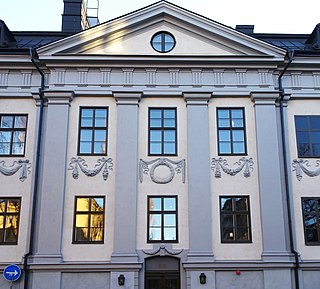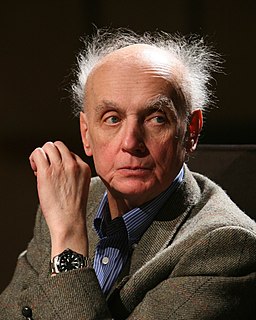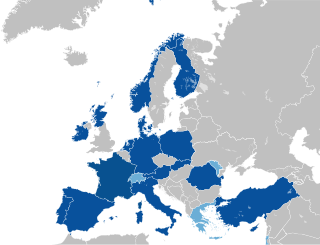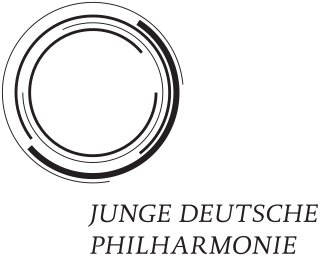Related Research Articles

The Council of the Baltic Sea States (CBSS) is a regional intergovernmental organisation working on three priority areas: Regional Identity, Safe & Secure Region and Sustainable & Prosperous Region. These three priority areas aim to address the themes of sustainable development, environment, sustainable maritime economy, education, labour, culture, youth engagement, civil security, children's rights and trafficking in human beings.

Wojciech Kilar was a Polish classical and film music composer. His film scores won many honors including the best score award for the music to Ziemia obiecana in 1975, followed by the Prix Louis Delluc in 1980 for the music to Le Roi et l'Oiseau / The King and the Mockingbird, and an award at the Cork International Film Festival for the music to From A Far Country (1981) about the life of Pope John Paul II.

Yuri Abramovich Bashmet is a Russian conductor, violinist, and violist.

Kristjan Järvi is an Estonian conductor, composer and producer born in Estonia, younger son of the conductor Neeme Järvi and brother of conductor Paavo Järvi and flautist Maarika Järvi.

The European Union Youth Orchestra (EUYO) is a youth orchestra with members drawn from the 27 members states of the European Union. Since its foundation in 1976, it has connected music colleges and the professional music world for generations of European musicians. EUYO is considered one of the best youth orchestras in the world, achieving "extraordinarily high standards" and playing at all major European festivals, including the Proms, the Salzburg Festival, and Young Euro Classic.
Gediminas Gelgotas is a Lithuanian composer, conductor and self-performing artist.

The European Federation of National Youth Orchestras (EFNYO) is the association of the national youth orchestras of Europe. Its mission statement is to "provide a unique platform for the exchange of experience in orchestra training". It is co-funded by the Creative Europe Programme of the European Union.

The National Forum of Music is a music venue located in Wrocław, Poland. It was completed in 2015 and houses a large concert hall with 1800 seats and three chamber halls and is home to many major ensembles and festivals in Wrocław. The postmodern building of the National Forum of Music (NFM) was designed by APA Kuryłowicz & Associates. It is one of the largest and most modern music venues in Poland.

The closing ceremony of the 2014 Winter Olympics was held on 23 February 2014 from 20:14 to 22:25 MSK (UTC+4) at the Fisht Olympic Stadium in Sochi, Russia. It was designed to show Russian culture, through a European perspective, and featured performances by Yuri Bashmet, Valery Gergiev, Denis Matsuev, Hibla Gerzmava, and Tatiana Samouil, among others.

Young Euro Classic is an international music festival for youth orchestras. Established in Berlin, Germany in 2000, it is one of the world's most important international platforms for young musicians in the Western classical music tradition. Every summer, orchestras from all over the world perform at the Konzerthaus Berlin.

The Baltic Sea Parliamentary Conference (BSPC) was established in 1991 as a forum for political dialogue between parliamentarians from the Baltic Sea Region. BSPC aims at raising awareness and opinion on issues of current political interest and relevance for the Baltic Sea Region. It promotes and drives various initiatives and efforts to support a sustainable environmental, social and economic development of the Baltic Sea Region. It strives at enhancing the visibility of the Baltic Sea Region and its issues in a wider European context.

The Bundesjugendorchester is the national youth orchestra of Germany, composed of pre-university students aged 14–19. It is supported by the project company of the Deutscher Musikrat and is based in Bonn. It was established in 1969, making it one of the oldest national youth orchestras in the world.
Anna Ekielska-Skóra is a Polish flautist and social activist, from 2008 first flautist of the orchestra of the Baltic Opera in Gdańsk, from 2015 leader of the activist TAK Choir, from 2019 member of the board of the Tolerado association advocating LGBT rights.

The Young Israel Philharmonic Orchestra is the national youth orchestra of Israel, based in the Jerusalem Music Centre, Jerusalem. It consists of 140 members divided into two ensembles, a 40-member string ensemble for ages 11–14, and the larger 100-member symphony orchestra for ages 14–18.

The Orchestre Français des Jeunes is the national youth orchestra of France, founded in 1982 by the Ministry of Culture. It consists of young musicians of ages 16 to 25, selected by audition.

The Junge Deutsche Philharmonie is one of the national youth orchestras of Germany. Unlike the Bundesjugendorchester, which is composed of pre-university students aged 14–19, the Junge Deutsche Philharmonie consists of conservatory students up to the age of 28. It was founded in 1974 and is based in Frankfurt.
The Turkish National Youth Philharmonic Orchestra is the national youth orchestra of Turkey, consisting of young musicians aged 15 to 22. It was founded in 2007 in Istanbul.

The National Batuta Foundation, commonly referred to as Batuta, is a Colombian music education system modelled on Venezuela's El Sistema.
References
- 1 2 3 4 5 "Baltic Sea Philharmonic". Baltic Sea Philharmonic. Retrieved 3 June 2020.
- ↑ European Federation of National Youth Orchestras. "Members&Partners" . Retrieved 2020-12-09.